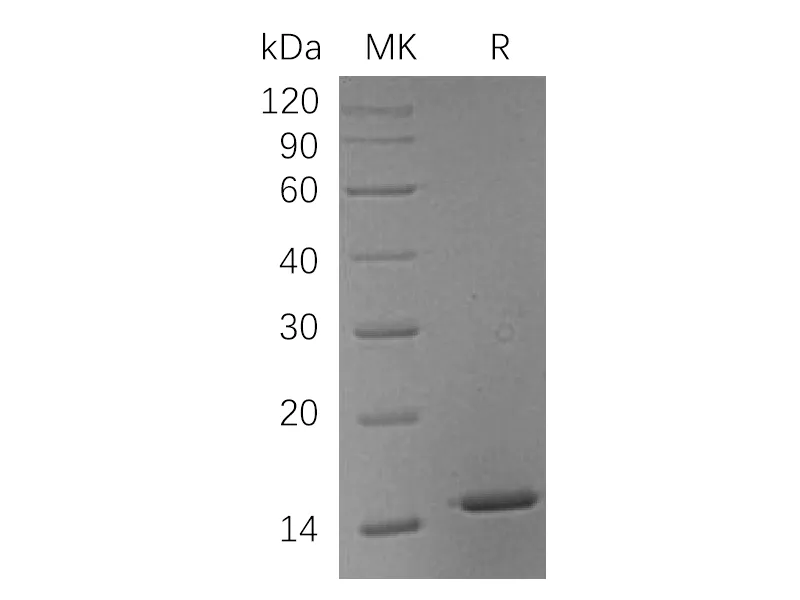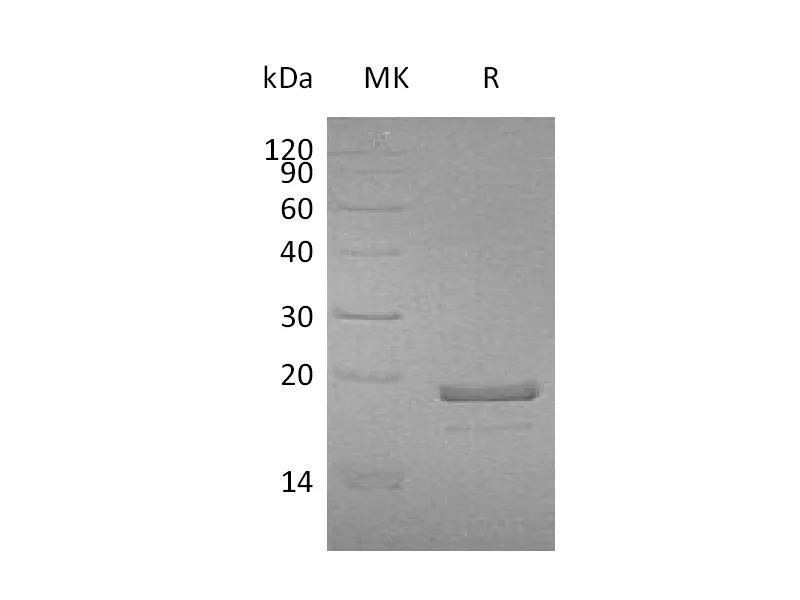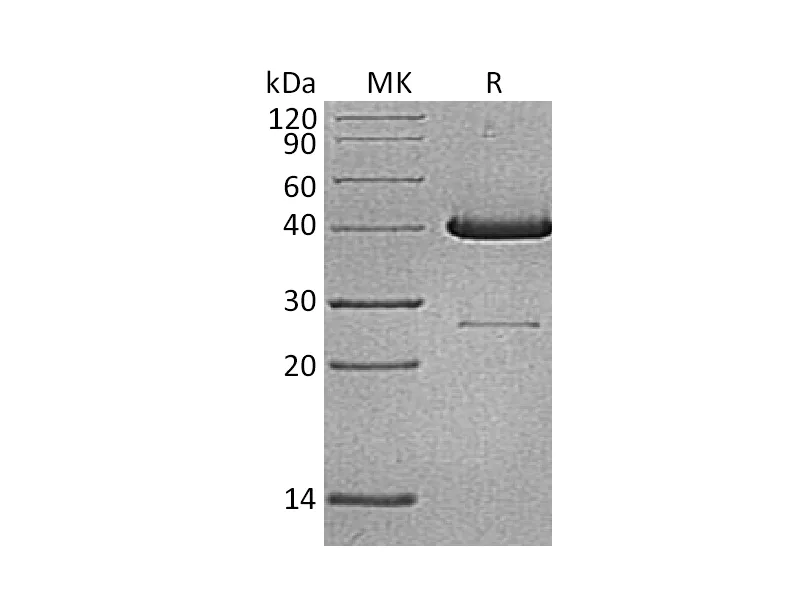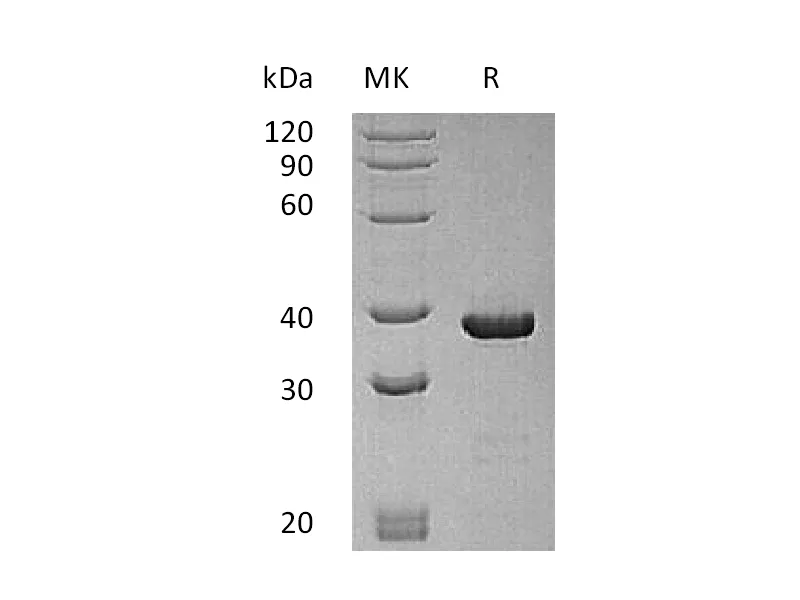| 产品名称 |
Recombinant Human tPA (C-6His) |
| 英文名称 |
tPA/Tissue-type plasminogen activator/PLAT |
| 纯度 |
Greater than 95% as determined by reducing SDS-PAGE |
| 内毒素 |
<1 EU/µg as determined by LAL test. |
| 蛋白构建 |
Recombinant Human Tissue-type Plasminogen Activator is produced by our Mammalian expression system and the target gene encoding Ser36-Pro562 is expressed with a 6His tag at the C-terminus. |
| Accession |
P00750 |
| 表达宿主 |
Human Cells |
| 种属 |
Human |
| 预测分子量 |
60.1 KDa |
| 制剂 |
Lyophilized from a 0.2 μm filtered solution of 20mM Succinate, 4% Trehalose, 4% Mannitol, 0.2mM CaCl2, 0.02% Tween 80, pH 4.5. |
| 运输方式 |
The product is shipped at ambient temperature.Upon receipt, store it immediately at the temperature listed below. |
| 稳定性&储存 |
Store at ≤-70°C, stable for 6 months after receipt.Store at ≤-70°C, stable for 3 months under sterile conditions after opening. Please minimize freeze-thaw cycles. |
| 复溶 |
Always centrifuge tubes before opening.Do not mix by vortex or pipetting.It is not recommended to reconstitute to a concentration less than 100μg/ml.Dissolve the lyophilized protein in distilled water.Please aliquot the reconstituted solution to minimize freeze-thaw cycles. |
| 分子别名 |
| T-PA; TPA; t-plasminogen activator; Tissue plasminogen activator |
| 背景介绍 |
| Tissue-type plasminogen activator (PLAT) is a protein that secreted into extracellular space. PLAT contains five domains: EGF-like domain, fibronectin type-I domain, 2 kringle domains and peptidase S1 domain. It belongs to the peptidase S1 family. The main function of this protein is to convert plasminogen into biologically active plasmin. As a protease, PLAT plays a crucial role in regulating blood fibrinolysis, maintaining the homeostasis of extracellular matrix and in modulating the post-translational activation of growth factors. PLAT is found not only in the blood, where its primary function is as a thrombolytic enzyme, but also in the central nervous system (CNS). It participates in a number of physiological and pathological events in the CNS, as well as the role of neuroserpin as the natural regulator of PLATs activity in these processes. Increased or decreased activity of PLAT leads to hyperfibrinolysis or hypofibrinolysis, respectively. In addition, as a cytokine, PLAT plays a pivotal role in the pathogenesis of renal interstitial fibrosis through diverse mechanisms. Thus, as a fibrogenic cytokine, it promotes the progression of kidney diseases. |
注意事项
本司产品仅用于科研,不用于临床诊断和治疗




